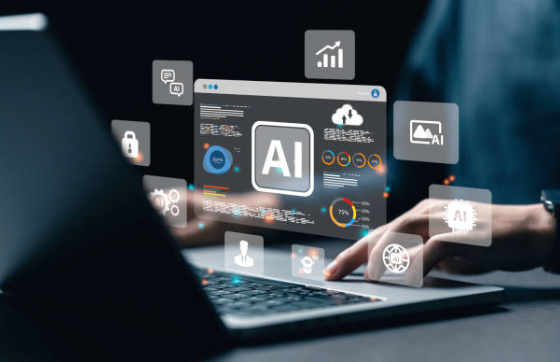Launching November 3, 2025, the American Arbitration Association—International Centre for Dispute Resolution (“AAA-ICDR”) is releasing a groundbreaking AI arbitrator in document-only construction dispute cases. As the legal community navigates the ethical and responsible adoption of Artificial Intelligence-driven technologies, AAA-ICDR is promising to “further its commitment to deliver transformative solutions.”
The growing accessibility of generative AI, especially at its onset, prompted both concerns around how it could displace human lawyers and judges and tongue-in-cheek predictions that machines might one day replace the legal professional altogether. Despite technological advances in intelligence, accurate outputs, and user friendliness, attorney disciplinary commissions and bar associations remain steadfast that the legal profession requires human judgment. Accordingly, AAA-ICDR’s AI arbitrator promises to combine the benefits of AI technologies without sacrificing human involvement.
Development
AAA-IDCR states that it placed ethics at the center of the AI arbitrator model development and anticipated execution. As described by Diana Didia, AAA-IDCR EVP and chief technology and innovation officer, for innovation to thrive in the legal system, it must be “supported by strict governance, AI standards, robust validation frameworks, trust, and accountability.” AAA-IDCR collaborated with QuantumBlack, AI by McKinsey, to develop the “digital dispute resolution center” and “AI arbitrator.”
Scope and Use
One of the strengths of AI is expedient document review. As such, the AI arbitrator is limited to documents-only construction cases, a high-volume area where human document review can draw out the length of arbitration.
According to AAA-IDCR, the AI arbitrator was “trained” on more than 1,500 construction awards and refined with expert-labeled examples. The intent is that the AI arbitrator is grounded in legal reasoning, as its foundation for decision-making, identifying and inferring patterns and rules from past human-arbitrated disputes and applying them to the dispute before it.
After the parties mandatorily disclose the use of AI, the AI arbitrator will perform its job: evaluate case merits by analyzing documents, generate recommendations, and prepare draft awards. However, it will not make final and binding decisions. Human arbitrators are required to provide final oversight, validation, and determination of an award.
Benefits
AAA-IDCR states that by using a technology that can streamline the arbitration process for human arbitrators, speed and efficiency of dispute resolution should increase and costs should decrease. There is an estimated 30-50% reduction in arbitration costs and predictions that case durations will decrease, which rose from 16 to 20 months in 20243. AAA-IDCR is asserting that greater benefits should flow from this “technological shift,” including increasing access to the justice system—where previously parties may have forsaken claims due to length of arbitration and high costs—and a positive impact on industry. Resolving construction disputes is particularly valuable as delays disrupt cash flow and projects.
Practical Considerations
For all the benefits of innovating arbitration, there are a variety of considerations to bear in mind. These include: lacking the capacity for human empathy and encouragement to settle throughout the process, recognizing AI’s struggle with equitable reasoning, maintaining trust in the process, and overreliance of arbitrators on the AI arbitrator’s recommendations.
Undisputedly, AI cannot replace human emotion and connection. With an AI arbitrator, the human connection is presented at the onset and conclusion of the dispute. Traditionally, arbitrators employ seasoned experience to guide parties to a resolution, fostering trust as a neutral party, and many humans are still distrustful of AI technologies, particularly as decision-makers or in making recommendations. By replacing the human element in the evaluation of the dispute, parties’ distrust of the entire arbitration system may increase and disputes that may have settled before the determination of an award may, instead, go through the entire arbitration process.
Future Outlook
AAA-ICDR’s launch is apropos as an increasing number of states, including Illinois, are releasing practical guidance for attorneys and judges on the appropriate use of AI. Among others, state guidance on AI generally reinforces two key themes: attorney responsibility and accountability for all AI-generated outputs. In practice, these ethical principles mean that attorneys are held responsible for conducting human review of all AI-generated outputs used and are accountable for their final work product.
While this launch is limited to document-only construction disputes, AAA-IDCR anticipates further embracing AI to transform “arbitration to meet the demands of a digital-first world4.” This includes expanding to other industries, like insurance, and higher-value disputes as early as 2026.
For more information on AI’s impact on the legal profession or for specific questions regarding an attorney’s use of AI, please contact Michael A. Airdo at mairdo@airdowerwas.com or Associate Attorney Elvira Kovachevich at ekovachevich@airdowerwas.com.


